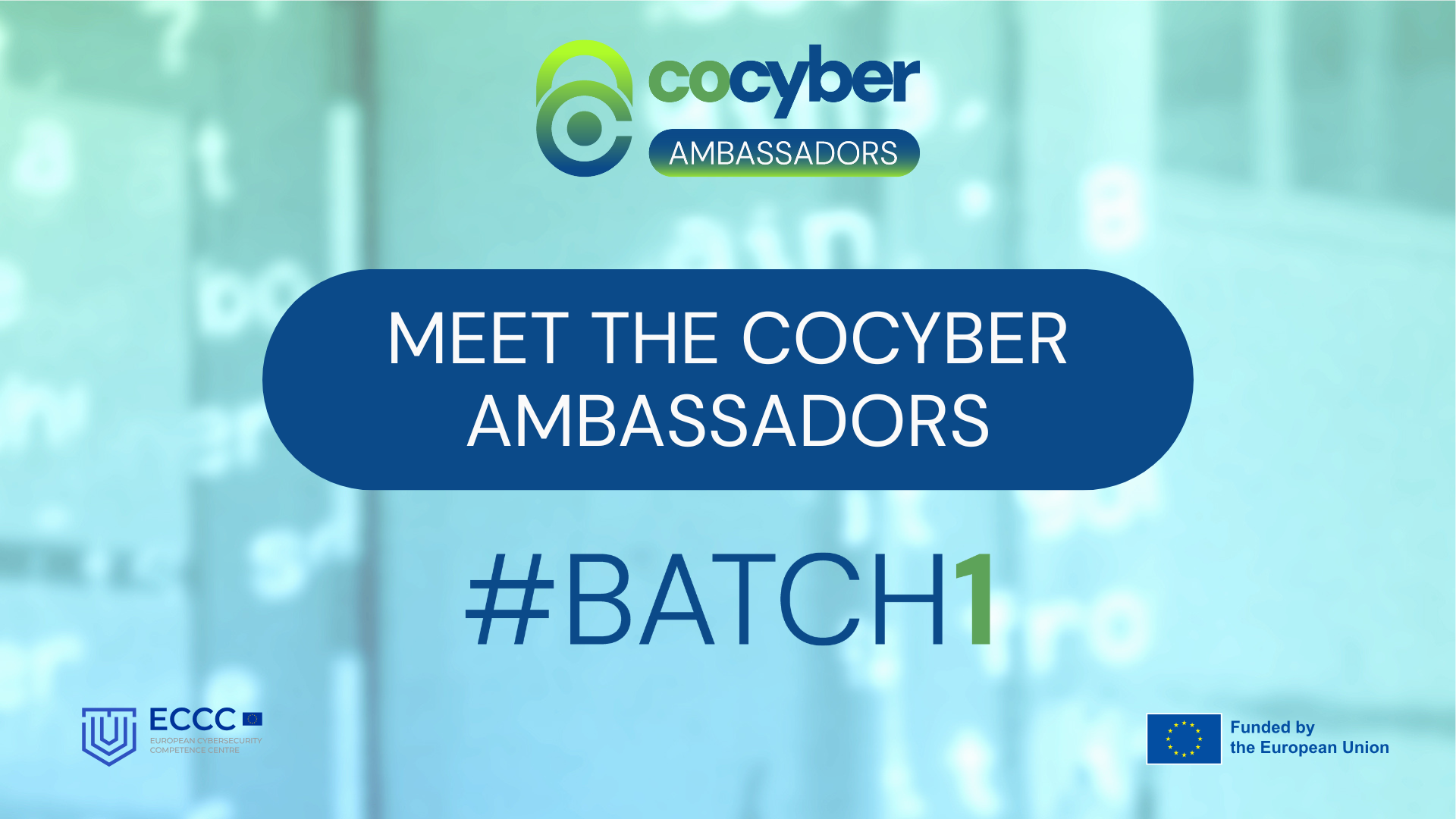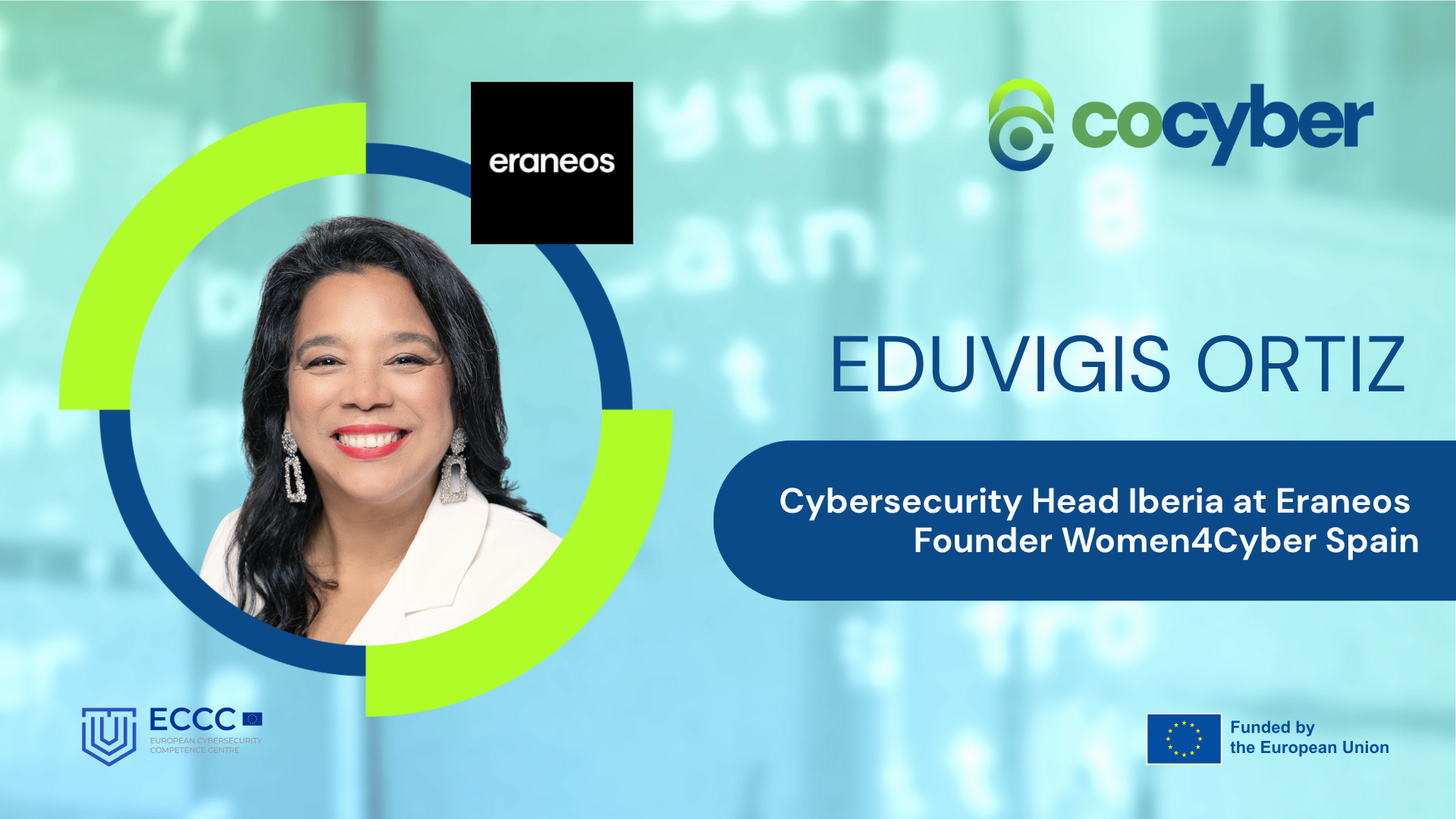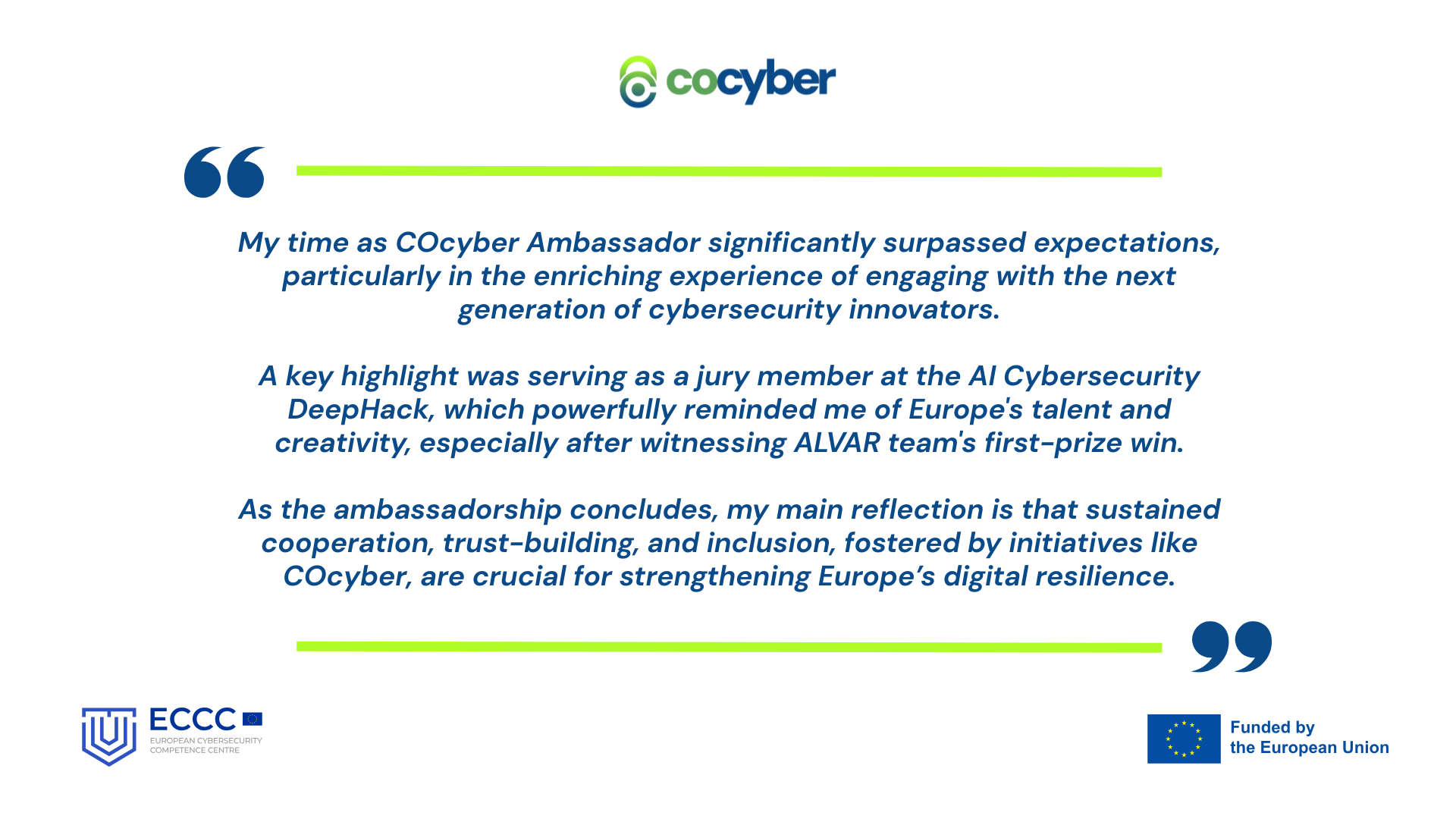COcyber Batch #1 Ambassadors in the Spotlight: Eduvigis Ortiz

Six months ago, the COcyber project launched the first round of its Ambassador Programme, an initiative designed to strengthen communication and engagement across Europe’s cybersecurity ecosystem. The programme brought external voices into the project’s outreach efforts, inviting experienced professionals to contribute through public dialogue, community engagement, and strategic insights.

As the first ambassador cohort concludes its mission, we’re taking time to reflect on each of their contributions, perspectives, and what they see as key priorities going forward.
In this article, we spoke with Eduvigis Ortiz to hear about her experience, her views on European cybersecurity, and her message as this six-month journey comes to an end.
Who are you, and what is your professional background?
Currently Cybersecurity Head Iberia at Eraneos, I have over 30 years of experience in business consulting and information systems, and I’ve held leadership roles in several multinational companies. My work has focused on developing and implementing strategies in cybersecurity, big data, artificial intelligence, and digital transformation. I hold a degree in Industrial Engineering and a Master of Science in Engineering from the University of Arizona as a Fulbright scholar, and I’ve completed executive programmes at institutions such as IESE, ESADE, INSEAD, and UCLA.

As founder and president of Women4Cyber Spain, I have worked to promote female talent in cybersecurity through mentoring programmes and entrepreneurship support. I also co-host a radio programme focused on building connections between Spain and Latin America and collaborate with organisations at national and European level to support a more diverse and resilient cybersecurity community.
Since when and how are you involved in the European cybersecurity sector?
I’ve been actively involved in the European cybersecurity field for more than twelve years, starting with my work in launching the Cybersecurity Business Unit at Prosegur and NovaRed. Through Women4Cyber Spain, I have contributed to key capacity-building initiatives including a multi-edition mentoring programme and a startup school aimed at encouraging innovation and entrepreneurship in cybersecurity.
Over the years, I’ve worked closely with public institutions, private sector stakeholders, and academia to support the development of strategies that address the talent gap and promote inclusion. I have participated in policy discussions, forums, and research projects, and continue to advocate for a more collaborative and integrated European cybersecurity ecosystem.
From your perspective, what are the main challenges in the collaboration of the civilian and defence cybersecurity sector in Europe?
One of the major challenges lies in the differing priorities and operational frameworks between the two sectors. Civilian cybersecurity focuses on safeguarding individuals, businesses, and infrastructure, while defence agencies are driven by national security concerns and often work within highly classified environments. These differing goals create barriers to alignment and coordination.
Fragmentation of policies and standards across EU Member States further complicates collaboration, as does the lack of trust and limited communication between public and private actors. Without shared frameworks or platforms for cooperation, it becomes difficult to create a unified response to fast-evolving cyber threats. Building bridges between sectors requires both political will and structured processes to overcome legal, organisational, and cultural differences.
Again, from your perspective, what are the most crucial steps to address these challenges and strengthen Europe’s joint digital safety efforts?
To address these challenges, we need to establish structured cooperation mechanisms supported at the European level. Standardised protocols for information sharing, joint training initiatives, and harmonised cybersecurity regulations are essential for enabling practical collaboration between civilian and defence actors.
Public-private partnerships must also be strengthened to ensure that innovation from the private sector informs defence strategies. More collaborative funding opportunities should be created for the development of European-owned cybersecurity technologies. Above all, trust needs to be built through continuous interaction, shared projects, and inclusive dialogue between sectors, ensuring that everyone involved is aligned in both objectives and methods.
Did your experience as a COcyber Ambassador align with what you expected at the beginning and what are your key reflections now that the journey is ending?
My experience as a COcyber Ambassador has exceeded my expectations by far. When I accepted this ambassadorship, I was excited about the opportunity to contribute to building bridges between civilian and defence cybersecurity communities across Europe, and to support the communication and dissemination of COcyber’s mission. What I did not fully anticipate was how enriching and energizing it would be to engage directly with the next generation of cybersecurity innovators.

One of the highlights of this journey was serving as a jury member at the AI Cybersecurity DeepHack. Evaluating the work of multidisciplinary, multicultural, and multigenerational teams tackling dual use cybersecurity challenges was a powerful reminder of the talent and creativity we have in Europe. Witnessing their progress throughout the hackathon, especially the ALVAR team, who took home first prize. It gave me real hope for the future of collaborative cyber defence.
As the six months are almost done, my key reflection is this: the most impactful way to strengthen Europe’s digital resilience is through sustained cooperation, trust building, and inclusion. We must continue to create spaces like COcyber, spaces that bring together public and private, civilian and defence, experienced professionals and emerging talent. Only that way can we truly advance a shared cybersecurity agenda for Europe, and that is a need!

